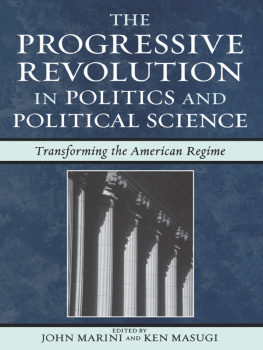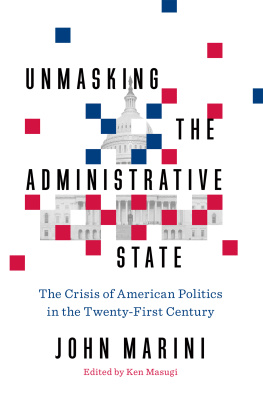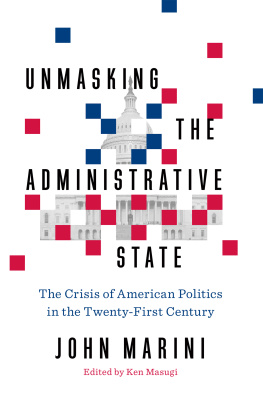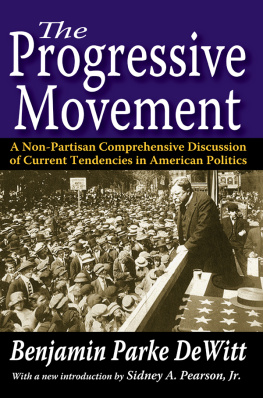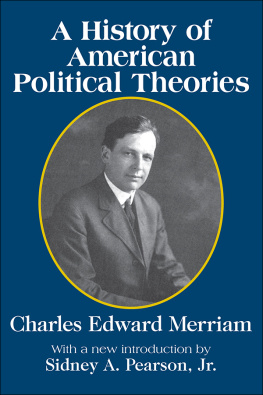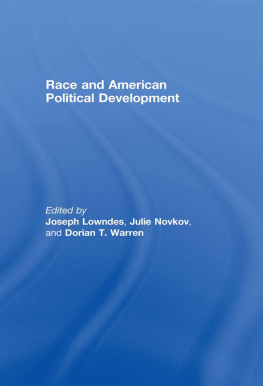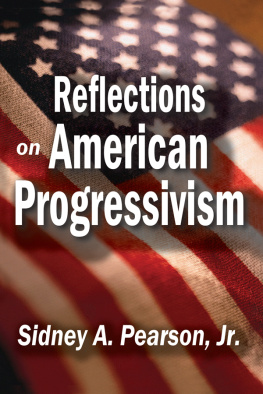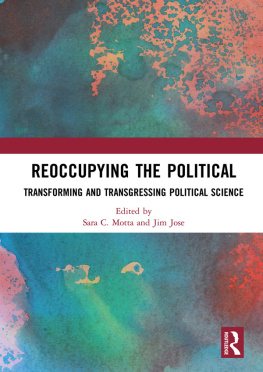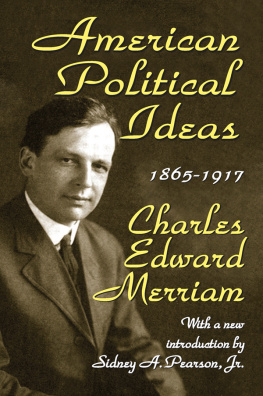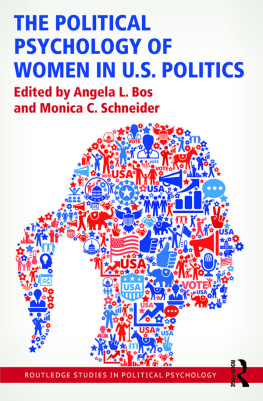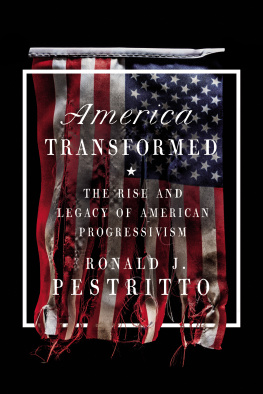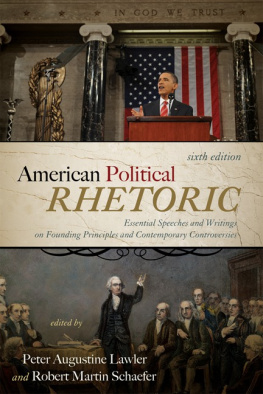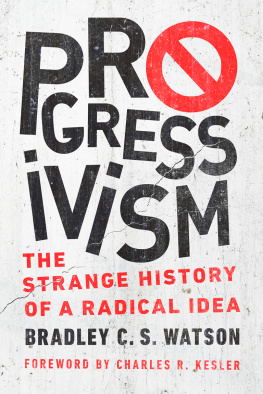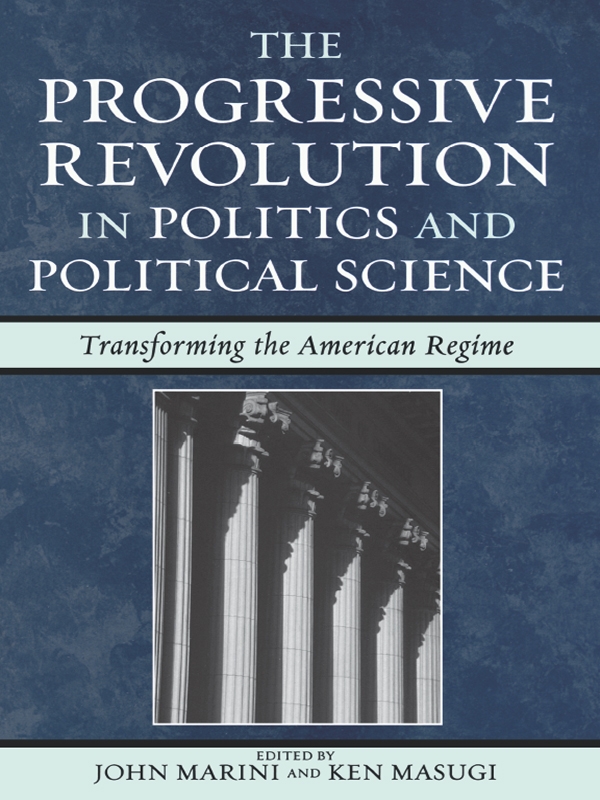About the Editors and Contributors
Paul Carrese is associate professor of political science at the United States Air Force Academy. He has been a Rhodes Scholar and held a post-doctoral fellowship in the Program on Constitutional Government, Harvard University. He is author of The Cloaking of Power: Montesquieu, Blackstone, and the Rise of Judicial Activism.
Eric R. Claeys is assistant professor at St. Louis University School of Law. A former clerk for Chief Justice William Rehnquist, he is author of monographs and scholarly articles on constitutional law. He is preparing a book on zoning and eminent domain.
Edward J. Erler is professor of political science at California State University at San Bernardino. He is author of The American Polity and has forthcoming a collection of essays on American politics. He is a senior fellow of the Claremont Institute.
Tiffany R. Jones is assistant professor of politics at the University of Dallas. She is preparing a book on the threats to the First Amendment in campaign finance reform. Her work emphasizes the hold of Progressivism on current political thought and practice.
John Marini is a senior fellow of the Claremont Institute and an associate professor of political science at the University of Nevada, Reno. He is co-editor of The Imperial Congress: Crisis in the Separation of Powers and author of The Politics of Budget Control: Congress, the Presidency, and the Growth of the Administrative State . From 1987-1988 he was a special assistant to Chairman Clarence Thomas of the U.S. Equal Employment Opportunity Commission.
Ken Masugi is Director of the Center for Local Government at the Claremont Institute. He is co-author, co-editor, or editor of seven books on American politics and political thought, including most recently The California Republic . His teaching positions have included the John M. Olin Distinguished Visiting Professorship at the United States Air Force Academy. From 1986-1990 he served as a special assistant to Chairman Clarence Thomas of the U.S. Equal Employment Opportunity Commission.
Will Morrisey is assistant professor of history and political science at Hillsdale College. His most recent books are Self-Government, The American Theme: Presidents of the Founding and Civil War and Regime Change: What It Is, Why It Matters. He is currently working on a study of self-government in the political thought of the presidents of the Progressive era.
Peter C. Myers is associate professor of political science at the University of Wisconsin, Eau Claire. He is author of Our Only Star and Compass: Locke and the Struggle for Political Rationality. He is writing a book on the thought and statesmanship of Frederick Douglass.
Larry Peterman is professor of political science at the University of California, Davis, and a senior fellow of the Claremont Institute. He has written extensively on Dante and on Machiavelli, among other major political theorists. Recently he has been studying family privacy in modern political thought.
John G. West is associate professor of political science at Seattle Pacific University and a senior fellow of the Discovery Institute, where he directs the program on religion and civic life. He is author of The Politics of Revelation and Reason.
Thomas G. West is professor of politics at the University of Dallas. A senior fellow of the Claremont Institute, he is author of Vindicating the Founders and Platos Apology of Socrates . He is co-editor of Shakespeare as Political Thinker and most recently of Challenges to the American Founding and The American Founding and the Social Compact. He is co-translator and editor of Four Texts on Socrates.
Scot J. Zentner is professor of political science at California State University, San Bernardino. He has published extensively on the American party system and Progressivism. He is currently editing a collection of essays on Harry V. Jaffas thought.
Chapter 1
Progressivism and the Transformation of American Government
Thomas G. West
Since 1900, but especially since the mid-1960s, American government has been changing into a new form that has been called the administrative state. This revolutionwhich we will call liberalism, as it calls itselfis as radical as was the American Revolution in 1776. It began with a new theory of justice and of government.
What happened over the last hundred years was, first, a vigorous theoretical attack on the founding principles, followed by a series of practical victories for the new approach to government. Charles Kesler has labeled the key moments in these victories the three waves of liberalism, corresponding to the three most productive liberal presidents: Woodrow Wilson, Franklin Roosevelt, and Lyndon Johnson. This long battle has also seen liberal retreats and occasionally outright defeats, as the epic struggle between liberalism and the older constitutionalism continues.
We can now look back on the twentieth century as a time of a great contest for the American soul between two strongly opposed conceptions of justice, with the liberal view winning out, but only incompletely. The contest continues in the new century. Meanwhile, the American people remain deeply divided, not just among themselves but also within themselves, over which of the two fundamentally opposed conceptions of justice is right.
MODERN LIBERALISM AND THE REJECTION OF NATURAL RIGHTS
Enlightenment thinkers like John Locke, William Blackstone, and Montesquieu were the three most cited European philosophers in the political writing of the founding era. Following the lead of Rousseau, later writers, many of them Germans, developed an approach to politics that turned against the Enlightenment and the American founding. Thinkers like Hegel and Marx and their students became the teachers of the founders of modern American liberalism.
In the late nineteenth century, educated Americans began to turn away from the natural rights theory of the founding. Their doctrines of relativism and historicismthe denial of objective truth and the claim that values change over timetook its place. Relativism is the view that there is objective knowledge only of facts, but not values. Science can know the truth about the material world, but it cannot tell us how to live. Historicism claims that all human thought is rooted in a particular historical time and place, so that the human mind can never escape the historical limitations of its own time. These two doctrines led men like Henry Adams to dismay and despair over a universe ultimately devoid of meaning. But relativism and historicism were combined by other men (somewhat inconsistently) with an enthusiastic faith in Science and Progress. This rejection of the founding principles occurred on both the right and the left of the political spectrum.
On the right, for example, Progressive era sociologist William Graham Sumner wrote: There are no dogmatic propositions of political philosophy which are universally and always true; there are views which prevail, at a time, for a while, and then fade away and give place to other views.
Just as the ground of the Founders natural rights theory was human nature as a permanent reality, the ground of the modern rejection of natural rights was a denial of human nature. Historian Richard Hofstadters casual dismissal of the Founders view in the 1940s was typical among liberal intellectuals throughout the twentieth century, for whom a Darwinian view of human nature was unquestioned orthodoxy: But no man who is as well abreast of modern science as the Fathers were of eighteenth century science believes any longer in unchanging human nature.

